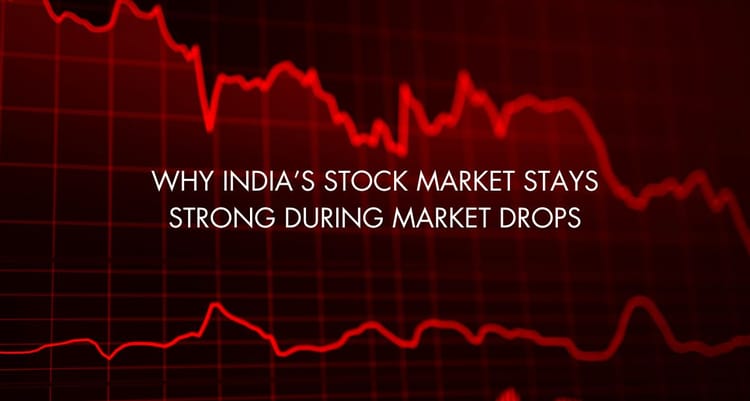Is Predicting the Stock Market Worthwhile?

The stock market, often seen as a puzzle of rising and falling numbers, has a certain allure. Many wonder if it's worth trying to predict where it's headed.
Let's start with the basics. The stock market is like a big marketplace where people buy and sell pieces of companies, called stocks. The prices of these stocks can go up or down based on lots of things happening in the world.
Imagine being able to foresee whether stock prices will go up or down. It sounds tempting, right? Many folks try to do just that, thinking it could help them make more money. But is predicting the market really as straightforward as it seems?
Efficient Market Hypothesis
There's a theory called the Efficient Market Hypothesis (EMH) that suggests the stock market is pretty good at reflecting all the information available. It's like saying the prices already consider everything people know. This makes predicting the market a bit like predicting the outcome of a game when everyone already knows the rules.
Technical vs. Fundamental Analysis
When people talk about predicting the stock market, they usually mean using two main methods: technical analysis and fundamental analysis.
Technical analysis involves looking at historical price charts and patterns. It's like studying past weather patterns to guess what the weather might be tomorrow. While it can be helpful for short-term decisions, it might not tell the whole story.
Fundamental analysis digs deeper. It's like looking at a company's report card to figure out how healthy it is. This method considers things like earnings, financial health, and industry position. But even this can't predict short-term market changes very accurately.
Behavioural Finance
Understanding people's behavior is a big part of predicting the market. Imagine if the stock market had emotions. Sometimes it might get scared, and prices drop. Other times it might get excited, and prices go up. This is where behavioural finance comes into play, helping us grasp the emotional side of the market.
The Limitations of Prediction
Even with all the tools and technology we have, predicting the stock market remains tricky. Unexpected events, global tensions, and sudden economic shifts can throw off the best predictions. It's like trying to guess the twists in a movie plot you've never seen before.
Long-Term vs. Short-Term Investing
If you're thinking about predicting the market, it's crucial to understand the difference between long-term investing and short-term trading. Long-term investing is like planting seeds and waiting for a tree to grow. Short-term trading is more like catching butterflies. Both have their own challenges and rewards.
So, is predicting the stock market worth it? It's like trying to predict the weather – you might get it right sometimes, but not always. Instead of solely focusing on predicting, consider building a strong foundation for your investments. Diversify your investments, think long-term, and be aware of your comfort with risk. In the end, the real worth might not just be in predicting but in learning, adapting, and enjoying the ever-changing ride of the financial world.
Frequently Asked Questions (FAQs)
Why do people try to predict the stock market?
People try to predict the stock market to make informed decisions about buying and selling stocks. The hope is to capitalize on potential price movements and maximize financial gains.
What is the Efficient Market Hypothesis (EMH), and how does it affect predicting the market?
The Efficient Market Hypothesis suggests that stock prices already incorporate and reflect all available information. This makes predicting the market challenging, as prices adjust rapidly to new information, making it difficult to consistently outperform the market.
What are the main methods for predicting the stock market?
The two primary methods are technical analysis and fundamental analysis. Technical analysis involves studying historical price charts and patterns, while fundamental analysis delves into a company's financial health, earnings, and overall market conditions.
Is predicting the stock market similar to predicting the weather?
Yes, in some ways. Both involve dealing with complex systems influenced by various factors. While patterns and trends can be observed, unexpected events can disrupt predictions in both the stock market and weather forecasting.
How does behavioral finance play a role in predicting the stock market?
Behavioral finance explores how psychological factors influence financial decisions. Understanding investor emotions, like fear and greed, helps in navigating the market's irrational moments and sudden price movements.
Can predicting the stock market be accurate in the long term?
Long-term predictions are particularly challenging due to the dynamic nature of the market and unforeseen events. While investors can make informed decisions based on thorough research, absolute accuracy in long-term predictions is elusive.
What's the difference between long-term investing and short-term trading?
Long-term investing involves holding onto investments for an extended period, focusing on a company's overall health. Short-term trading aims to capitalize on market fluctuations and may involve buying and selling stocks more frequently.
Is it better to focus on predicting short-term or long-term market movements?
The choice depends on individual preferences and risk tolerance. Long-term investing is often considered a more stable and less stressful approach, while short-term trading requires a higher level of skill, timing, and risk acceptance.
What should I consider instead of solely trying to predict the stock market?
Rather than solely focusing on predictions, consider building a diversified portfolio, thinking long-term, and understanding your comfort with risk. This approach may prove more rewarding and sustainable in the unpredictable world of the stock market.






Member discussion